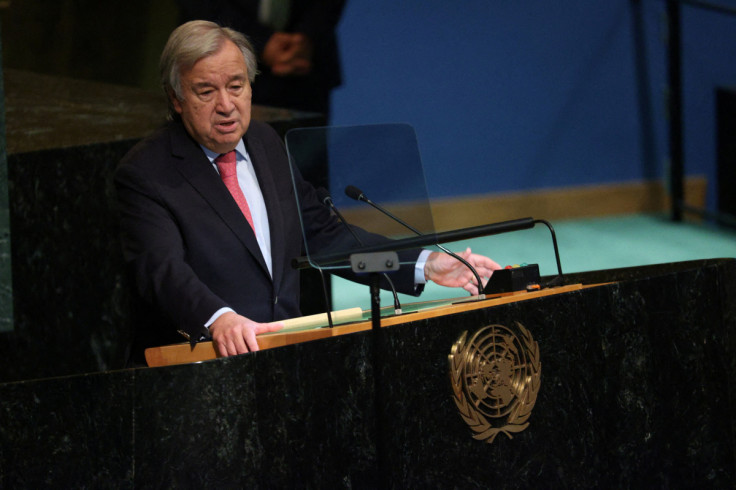U.N. Chief Suggests Rapid Action Force To Help Haiti

U.N. Secretary-General Antonio Guterres has proposed that one or several countries send "a rapid action force" to help Haiti's police remove a threat posed by armed gangs, according to a letter to the U.N. Security Council, seen by Reuters on Sunday.
Guterres is not suggesting that the force be deployed by the United Nations. He said the 15-member Security Council should simply welcome such a force and notes that he may boost U.N. capacity to support a ceasefire or humanitarian arrangements and ensure coordination of efforts with an international force.
Haiti last week said it would ask for a "specialized armed force" to help combat crisis caused by a blockade of its main fuel port by a coalition of gangs that has crippled transport and forced businesses and hospitals to halt operations.
The blockade has also led to a shortage of bottled water, just as the country confirmed a new outbreak of cholera, the spread of which is controlled through hygiene and clean water.
The United States said on Saturday it was reviewing Haiti's request.
Guterres said a rapid action force "would, in particular, support the HNP (Haitian National Police) primarily in the Port-au-Prince metropolitan area in securing the free movement of water, fuel, food and medical supplies from main ports and airports to communities and health care facilities."
"To this end, the force would support the HNP's efforts to remove the threat posed by armed gangs and provide immediate protection to critical infrastructure and services," he wrote.
Guterres said one country would need to lead the rapid action force and that the force "would be gradually phased out as the HNP regained state control of critical infrastructure targeted by gangs and began to restore general security and freedom of movement."
At that point Guterres said the deployment of a multi-national police task force or multi-national special force could be considered to help Haiti in the medium term. He was not suggesting that such a force would be a U.N. deployment.
The Security Council had asked Guterres in July to consult with Haiti, relevant countries and regional groups on "possible options for enhanced security support" for HNP efforts to combat high levels of gang violence" and report back by Oct. 15.
The council has also threatened targeted sanctions against criminal gangs and human rights abusers in Haiti and called on countries to stop a flow of guns to the country.
A U.N. political mission in Haiti works with the government to strengthen political stability and good governance, rights protection and justice reform and to help with the holding of free and fair elections.
U.N. peacekeepers were deployed to Haiti in 2004 after a rebellion led to the ouster and exile of then-President Jean-Bertrand Aristide. Peacekeeping troops left in 2017 and were replacing by U.N. police, who left in 2019.
© Copyright Thomson Reuters 2024. All rights reserved.





















